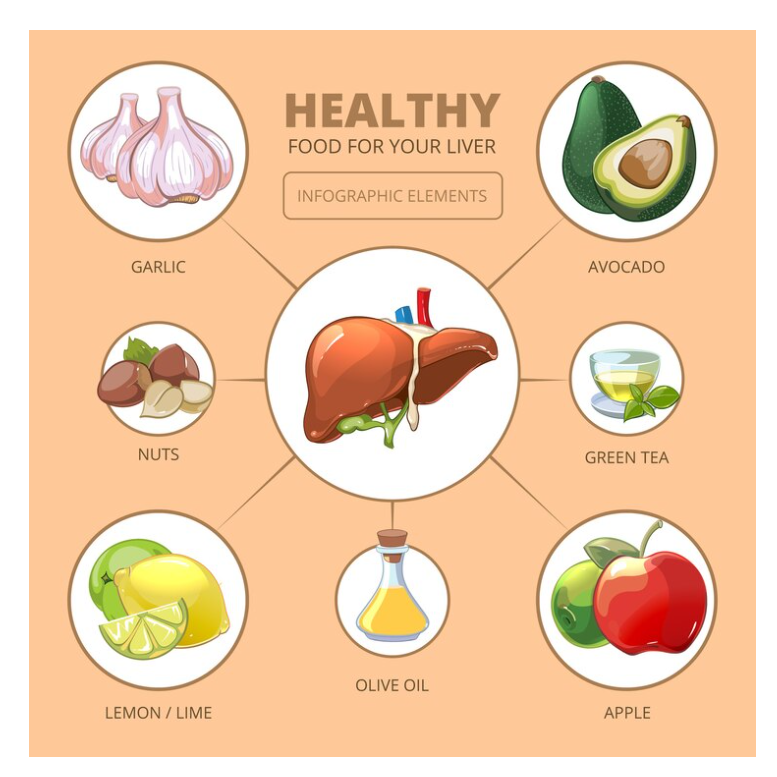
Dietary Recommendations for Fatty Liver
Introduction: When it comes to managing fatty liver disease, what you eat plays a crucial role. Making simple dietary changes can help support liver health and reduce fat buildup. Here’s a beginner’s guide to dietary recommendations for fatty liver in easy-to-understand language.
1. Load Up on Fruits and Vegetables:
- Colorful Variety: Aim to fill half your plate with a colorful array of fruits and vegetables at each meal. They are rich in vitamins, minerals, and antioxidants that support liver function and reduce inflammation.
2. Choose Whole Grains:
- Swap Refined Carbs: Opt for whole grains like brown rice, quinoa, oats, and whole wheat bread instead of refined carbohydrates like white rice and white bread. Whole grains provide fiber, which helps in weight management and regulates blood sugar levels.
3. Include Lean Proteins:
- Healthy Protein Sources: Incorporate lean proteins such as chicken breast, turkey, fish, tofu, beans, and lentils into your meals. These proteins are lower in saturated fats and can help repair liver cells.
4. Embrace Healthy Fats:
- Omega-3 Rich Foods: Include sources of healthy fats like fatty fish (salmon, mackerel, sardines), avocados, nuts, and seeds in your diet. Omega-3 fatty acids have anti-inflammatory properties that benefit liver health.
5. Limit Saturated and Trans Fats:
- Read Labels: Check food labels and avoid products high in saturated and trans fats, such as fried foods, processed snacks, and fatty cuts of meat. These fats can contribute to liver inflammation and worsen fatty liver disease.
6. Cut Back on Added Sugars:
- Hidden Sugars: Be mindful of hidden sugars in packaged foods and beverages like soda, sweets, and sugary snacks. Opt for natural sweeteners like honey or maple syrup in moderation.
7. Watch Your Portions:
- Portion Control: Be mindful of portion sizes to avoid overeating, which can lead to weight gain and liver fat accumulation. Use smaller plates and listen to your body’s hunger and fullness cues.
8. Stay Hydrated:
- Water is Key: Drink plenty of water throughout the day to stay hydrated and support liver function. Limit sugary drinks and opt for water, herbal teas, or infused water instead.
9. Limit Alcohol Intake:
- Moderation or Abstinence: If you drink alcohol, do so in moderation. For women, this means up to one drink per day, and for men, up to two drinks per day. Consider abstaining if you have fatty liver disease or other liver conditions.
Making these dietary changes can help improve liver health and manage fatty liver disease over time. Remember to consult with your healthcare provider or a registered dietitian for personalized dietary advice tailored to your specific needs and health goals.
To seek medical advice, always consult a Doctor. Here are our recommended experts. Click here
To read more on Respiratory disease . Click Here



